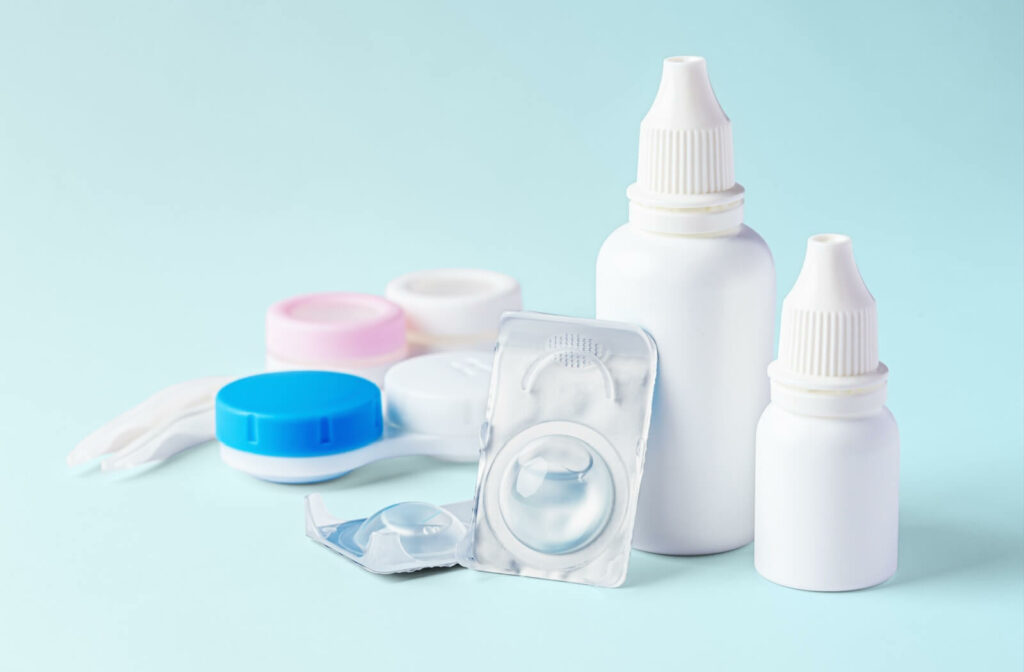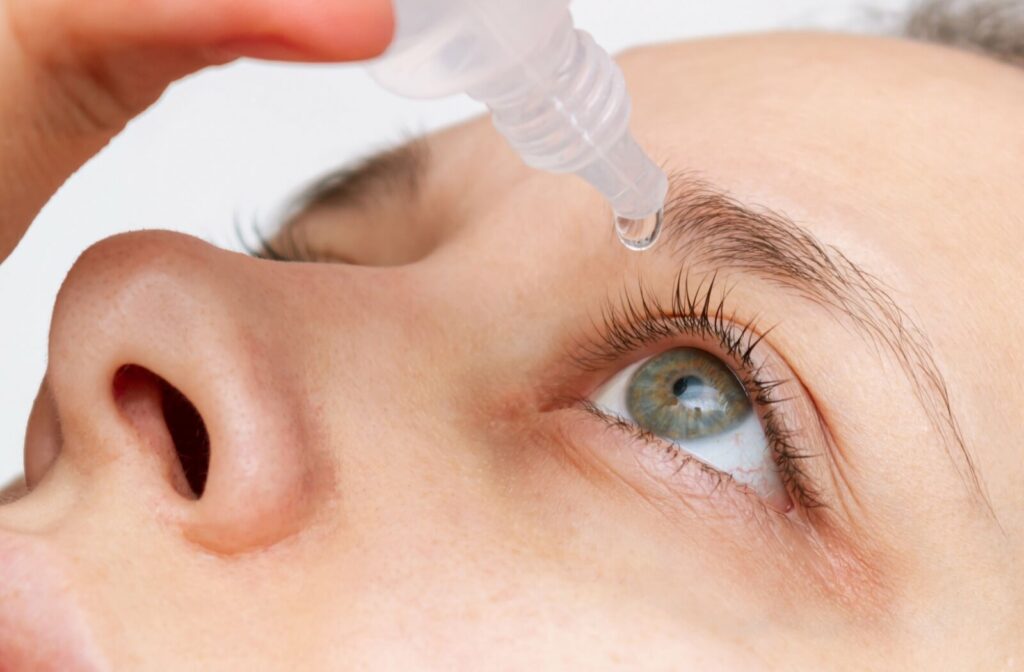Eye drops are essential tools for addressing a variety of eye issues, whether it’s dry eyes, an infection, or post-surgical care. Over time, we tend to accumulate bottles of eye drops in our cabinets, often forgetting about them once the initial treatment is over.
But what happens when those eye drops sit around for too long? Can they still be used safely after their expiration date? At Valley Eye & Vision Clinic, we often hear questions about this, and we want to clarify why using expired eye drops is not a good idea. Using expired eye drops is not safe, as they can lose effectiveness and pose a risk of contamination, potentially leading to irritation or infection.
The Importance of Expiration Dates for Eye Drops
Like any medication, eye drops have an expiration date that ensures the product’s effectiveness and safety. Using expired eye drops can be risky for several reasons, and it’s essential to understand why expiration dates matter. Here are the key factors:
1. Loss of Potency
Over time, the active ingredients in eye drops begin to break down. This means that the drops may no longer provide the intended relief or may be less effective in treating conditions like eye dryness, infection, or inflammation.
2. Sterility Concerns
Eye drops are designed to be sterile to prevent infections. After the expiration date, preservatives in the drops lose their effectiveness, and bacteria or fungi can start to grow. This is particularly concerning since the drops are going directly into your eyes, which are highly sensitive to contamination.
3. Chemical Instability
As the active ingredients degrade, the formula can become chemically unstable. This could lead to irritation or an adverse reaction, potentially causing more harm than good.
How Eye Drops Can Become Contaminated
Even before a bottle expires, eye drops are vulnerable to contamination. Here’s how it happens:
- Repeated exposure: Every time you open the bottle, the solution is exposed to air and germs, increasing the risk of bacteria or fungi growth.
- Contact with surfaces: If the dropper tip touches your eye, fingers, or other surfaces, it can transfer bacteria into the bottle, causing contamination.
- Weakened preservatives: The preservatives in eye drops break down over time, making the solution more likely to become contaminated as it ages.
What Can Happen If You Use Expired Eye Drops?
If you continue to use expired eye drops, you may face several risks that can harm your eyes and overall health. These risks include:
1. Ineffective Treatment
Expired drops may no longer be effective in treating your condition. For example, antibiotic eye drops may lose their ability to fight infections, leading to a prolonged or worsening infection.
2. Eye Irritation
Eye drops that have gone past their expiration date might cause irritation instead of relief. If the chemical balance in the drops changes, you could experience discomfort, stinging, or burning sensations.
3. Increased Risk of Infection
One of the most serious risks of using expired eye drops is infection. Contaminated eye drops can introduce harmful bacteria or fungi to your eyes, leading to infections. This can cause pain, discharge, and in severe cases, damage to your eyes or vision.
Signs That Your Eye Drops Are No Longer Safe to Use
Sometimes, you can spot the problem before you even check the expiration date. Here are some clues that your eye drops may be compromised:
- Change in color or cloudiness: If the liquid looks cloudy, discolored, or different from when you first opened it, it’s time to dispose of it.
- Off smell: A foul or sour odor indicates that bacteria or other microorganisms may have begun growing in the bottle.
- Residue around the cap or dropper tip: Crust or buildup around the dropper or bottle cap could be a sign of contamination.
- Altered consistency: If the drops appear thicker, grainy, or have a different texture, they should not be used.
If you notice any of these signs, it’s best to throw out the expired drops and get a fresh bottle. Even if the drops appear fine, it’s always best to check the expiration date to ensure they are still safe to use.

Tips to Maximize the Shelf Life of Your Eye Drops
There are several ways you can extend the shelf life of your eye drops and ensure they stay effective:
- Store properly: Always keep your eye drops in a cool, dry place away from sunlight and heat. Exposure to heat can cause the ingredients to break down faster.
- Follow the 30-day rule: Some eye drops, especially preservative-free ones, should be discarded after 30 days once opened. Always check the packaging for specific instructions.
- Buy smaller bottles: If you don’t use eye drops frequently, buy smaller bottles to reduce the risk of expiration before use.
- Avoid sharing: Never share your eye drops with others. Sharing can introduce bacteria to the solution, compromising its sterility.
When Should You Visit an Eye Care Professional?
Even if your eye drops are fresh, it’s important to consult an optometrist if you experience certain symptoms. If your condition persists or worsens, here are some signs that it’s time to seek professional help:
- Pain or discomfort: Any sharp or throbbing pain in your eyes should be taken seriously, as it could signal an infection or injury that needs urgent treatment.
- Symptoms don’t improve: If redness, itching, or discharge persists beyond a few days, it could be a sign of an underlying issue that requires attention.
- Changes in vision: Sudden blurred vision, double vision, or floaters should not be ignored. These could indicate a more serious problem that requires immediate evaluation.
Protecting Your Eye Health in WA
Your eyes are important, and taking care of them means using the right products and treatments. At Valley Eye & Vision Clinic in Moses Lake & East Wenatchee, we’re here to guide you on proper eye drop use and help with any eye health concerns. If you’re unsure about your eye drops or have ongoing issues, schedule an appointment with us! Our team will make sure you’re using the best care for your eyes.


